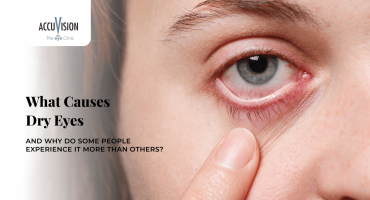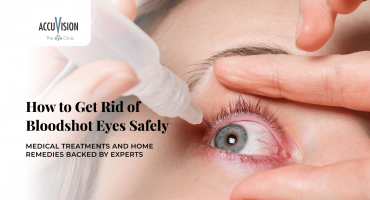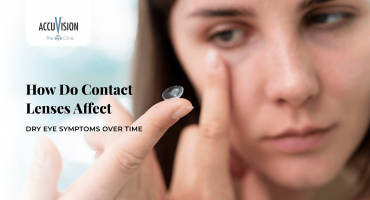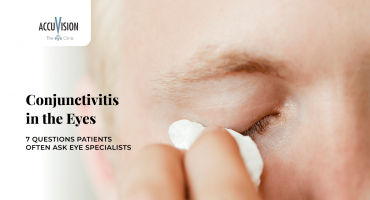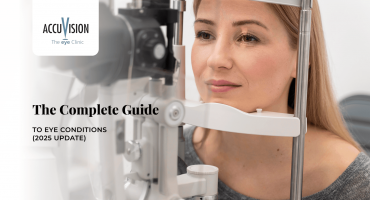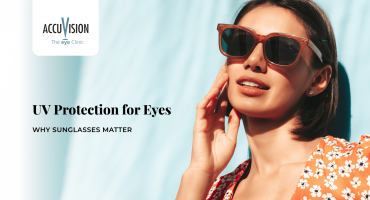- Impact of Healthy Eyes on Daily Life
- Vision for Life: The Secret to Protecting Your Eyes Forever
- Daily Habits That Keep Your Eyes Strong for Life
- How to Keep Eyes Healthy Across Different Life Stages
- Warning Signs You Should Never Ignore About Your Eyes
- Conclusion
- FAQs:
- References:
How to Keep Your Eyes Healthy for Life: Why Lifelong Eye Health Matters
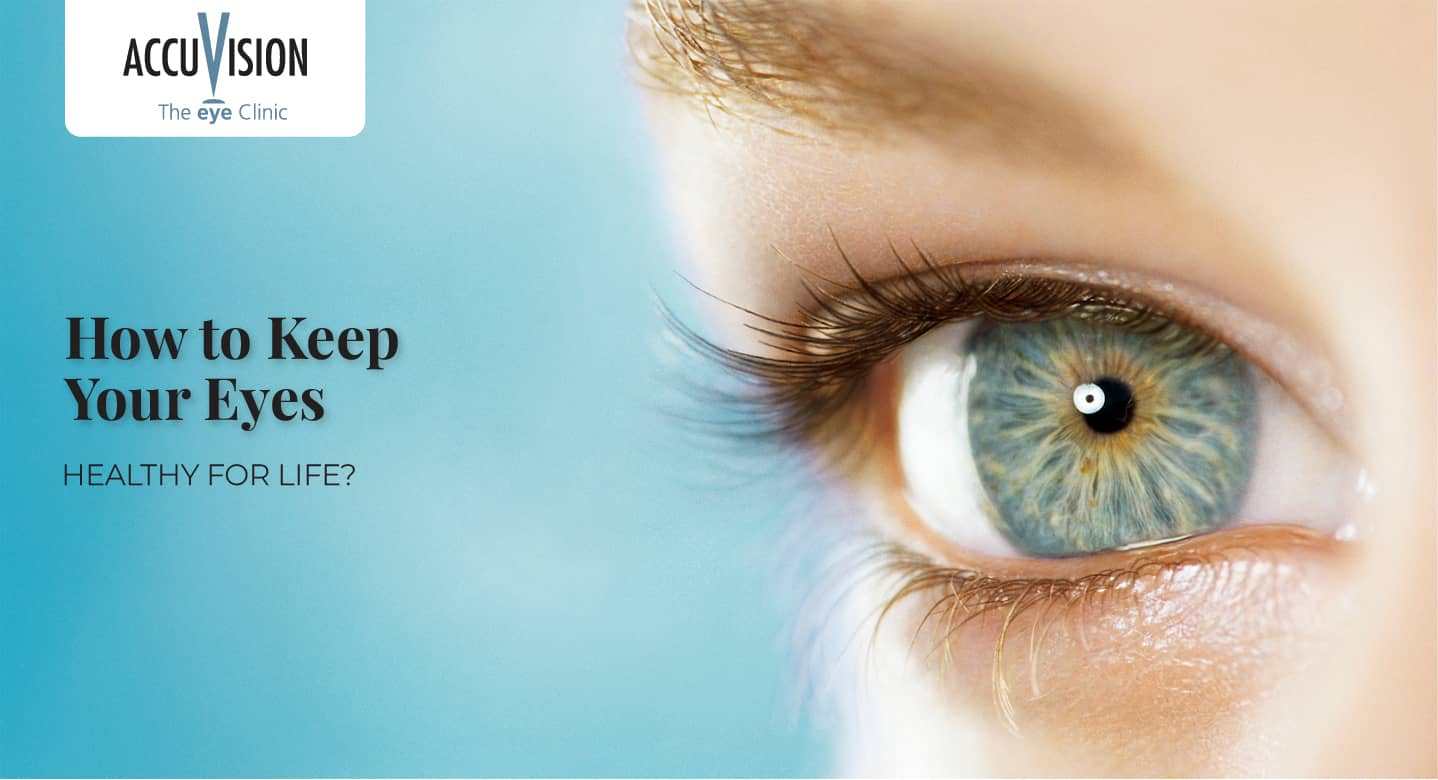
Your vision is your view of the world: it enables you to read this article, recognize loved ones, navigate safely, and maintain your independence throughout life. Yet many of us take our eyesight for granted until problems arise. The truth is good vision influences nearly every part of life, shaping how you perform at work, connect socially, maintenance of mental health, and the overall quality of life.
Impact of Healthy Eyes on Daily Life
Modern life presents unique challenges to maintaining healthy vision. Our increasingly ageing global population means more people are at risk of age-related eye conditions. At the same time, our digital-first lifestyles expose us to new forms of eye strain and potential damage. With people spending an average of 7+ hours each day looking at screens and life expectancy continuing to rise worldwide, proactive eye care has never been more crucial.
Protecting your eyes for life requires more than generic advice or standard check-ups. True lifelong eye health tips must be personalized to your unique needs, lifestyle, and risk factors. This detailed blog will show you lifelong eye health tips and habits while highlighting why individualized care makes all the difference.
Vision for Life: The Secret to Protecting Your Eyes Forever
Understanding how to keep your eyes healthy begins with recognizing that no two pairs of eyes are identical. Multiple elements, including hereditary traits, systemic health, occupational risks, lifestyle patterns, and environmental influences, collectively determine ocular health. For instance, someone with a family history of glaucoma requires different monitoring than someone whose primary concern is digital eye strain from office work.
Many general eye care providers offer standardized tests and one-size-fits-all treatments. While these serve a purpose, they may miss subtle variations in your eye structure, function, or risk profile that could be crucial for maintaining optimal vision throughout your life. Generic eye health habits, while beneficial, cannot account for individual factors like existing medical conditions, medication interactions, or specific visual demands of your work or hobbies.
Advanced diagnostic technologies such as corneal topography, Wavefront analysis, and high-resolution retinal imaging can provide a detailed map of your unique eye characteristics. These allow eye care professionals to develop truly personalized care plans that go beyond standard prescriptions
Daily Habits That Keep Your Eyes Strong for Life
While personalised care is essential, certain best habits for eye health form the foundation of lifelong vision protection. Here are evidence-based strategies that benefit everyone, though eye care professionals can provide personalised nutritional guidance based on your health profile and examination findings
1. Nutrition & Hydration for Eye Health
Your eyes require specific nutrients to function optimally and protect against age-related damage. Research, including the landmark Age-Related Eye Disease Study (AREDS), has identified key vitamins and minerals that support eye health:
- Omega-3 fatty acids found in oily fish like salmon and mackerel help maintain the tear film and may reduce dry eye symptoms.
- Lutein and zeaxanthin from leafy greens act as natural sunglasses for the retina.
- Vitamin C and E provide antioxidant protection against cellular damage.
- Zinc supports retinal health and may slow the progression of age-related macular degeneration.
However, nutritional needs vary significantly. Someone with diabetes may require different dietary approaches than someone with high cholesterol, and certain medications can affect nutrient absorption. Professionals can provide personalized nutritional guidance based on your health profile and eye examination findings.
2. Screen Time Management
Digital eye strain affects a significant number of people who regularly use computers, tablets, or smartphones. The most widely recommended strategy is the 20-20-20 rule: every 20 minutes, look at something 20 feet away for 20 seconds. Additional best habits for eyes health during screen use include:
- Adjusting screen brightness to match your surroundings
- Positioning screens 20-26 inches away at eye level
- Using artificial tears if you experience dryness
- Considering blue light filtering lenses, though, evidence on their necessity remains mixed
3. UV and Environmental Protection
Ultraviolet radiation can contribute to cataracts and macular degeneration over time. Quality sunglasses that block 99-100% of UV-A and UV-B rays are essential, even on cloudy days. Additionally, protecting your eyes from environmental irritants like dust, wind, and pollution can prevent damage and discomfort. Protecting against UV rays and environmental irritants is a fundamental part of understanding how to keep eyes healthy long term.
4. Sleep and Stress Management
Adequate sleep allows your eyes to rest and repair themselves. During sleep, your eyes are lubricated and cleared of irritants accumulated throughout the day. Chronic stress can also affect vision by increasing blood pressure and potentially contributing to conditions like central serous retinopathy.
Simple lifestyle measures such as good sleep hygiene, regular exercise, and relaxation techniques not only benefit overall health but also support healthy eyes
5. Systemic Health and Eye Connection
Eyes are closely linked to your overall health, and everyday management of systemic conditions is key to protecting vision:
- Diabetes: Keep blood sugar stable with balanced meals, regular activity, and prescribed medication. Annual eye exams help detect retinopathy early
- Hypertension: Reduce salt, maintain a healthy weight, and manage stress to protect retinal blood vessels
- Autoimmune disorders: Follow your treatment plan, stay hydrated, and use lubricating drops if dry eye occurs
- Smoking and high cholesterol: Quitting smoking and eating more fruit, vegetables, and omega-3-rich foods lowers the risk of cataracts and macular degeneration.
Small daily choices to manage these conditions support both general well-being and long-term eye health.
6. Avoiding Over-the-Counter Quick Fixes
Many people turn to “red-eye” or brightening drops for temporary relief. However, these can mask underlying issues such as dry eye disease, allergies, or early inflammation, delaying accurate diagnosis. If you notice persistent redness, dryness, or blurred vision, it is always best to seek professional evaluation rather than self-medicating.
7. The Role of Personalized Eye Check-ups
Standard tests typically focus on visual acuity and basic health screening, but may miss early signs of conditions that could benefit from early intervention. Advanced diagnostic approaches may include detailed corneal mapping, comprehensive retinal photography, and sophisticated measurements that can detect changes long before they affect your vision. This technology enables:
- Identification of risk factors for future problems
- Tracking subtle changes over time
- Developing targeted prevention strategies
- Creating personalised treatment plans that evolve with your needs
How to Keep Eyes Healthy Across Different Life Stages
Lifelong eye health tips must evolve as we age, as different life stages present unique challenges and opportunities for vision care:
Children & Teens
Early intervention can significantly impact lifelong eye health. Key considerations include myopia prevention through outdoor time and proper reading habits, establishing healthy screen time boundaries, and ensuring any vision problems don’t interfere with learning and development. Comprehensive paediatric eye assessments can identify issues that might be missed in school screenings
Adults (20s-40s)
Working-age adults face challenges from prolonged computer use, driving demands, and lifestyle pressures. This is also when some genetic conditions may begin to manifest. Regular monitoring becomes increasingly important, particularly for those with a family history of eye disease or other risk factors.
Over-40s and Beyond
Presbyopia typically begins in the 40s, while risks for cataracts, glaucoma, and macular degeneration increase with age. Early detection and personalized management strategies can help maintain vision and quality of life. Detailed monitoring can track changes and adjust treatments as needed.
Warning Signs You Should Never Ignore About Your Eyes
Knowing how to protect eyesight for life includes recognising when urgent professional attention is needed. Seek immediate care if you experience:
- Sudden vision loss or significant vision changes
- Flashing lights or new floaters, especially if accompanied by vision loss
- Severe eye pain, particularly with nausea or headache
- Curtain-like shadow in your peripheral vision
- Sudden double vision
- Chemical exposure to the eyes
These symptoms may indicate serious conditions requiring prompt treatment to prevent permanent vision loss. Many clinics offer urgent assessment appointments for concerning symptoms, ensuring you receive timely, expert care when it matters most.
Conclusion
Maintaining healthy eyes for life requires a mix of lifelong eye health tips, evidence-based daily habits, and personalized professional care. While general eye health habits provide an important foundation, truly effective lifelong vision protection must be tailored to your unique needs, risk factors, and circumstances.
The key takeaway is simple: consistent healthy habits combined with personalized, comprehensive eye care provide the best strategy for protecting your vision throughout your life. Don’t wait for problems to develop; proactive care is always more effective than reactive treatment.
Ready to take the next step in protecting your vision? Consider booking a comprehensive, personalized eye check-up with a qualified eye care professional to discover how to protect eyesight for life. Your future self will thank you for the investment in your vision today.
FAQs:
1. What are the best habits for eye health?
Eating nutrient-rich foods, managing screen time, wearing UV-protective sunglasses, staying hydrated, and getting enough sleep are simple but effective ways to keep your eyes healthy.
2. How often should I get my eyes checked?
Most adults benefit from a comprehensive eye exam every 1–2 years. However, those with conditions like diabetes, hypertension, or a family history of eye disease may need more frequent check-ups.
3. Can lifestyle really affect lifelong eye health?
Yes. Factors such as diet, smoking, alcohol use, screen habits, and sun exposure all play a major role in protecting or harming your eyesight over time.
4. What is the 20-20-20 rule for eye care?
It’s a simple method to reduce digital eye strain: every 20 minutes, look at something 20 feet away for 20 seconds.
5. How can I protect my eyesight for life?
The best approach combines healthy daily habits with regular professional eye exams and personalized care tailored to your age, lifestyle, and medical history.
References:
Chew, E. Y., Clemons, T. E., SanGiovanni, J. P., Danis, R., Ferris, F. L., Elman, M., Antoszyk, A., Ruby, A., Orth, D., Bressler, S. B., Fish, G., Hubbard, B., Klein, M., Chandra, S., Blodi, B., Domalpally, A., Friberg, T., Wong, W., Rosenfeld, P., Agrón, E., Toth, C., Bernstein, P. & Sperduto, R. (2013) ‘Lutein + zeaxanthin and omega-3 fatty acids for age-related macular degeneration: The Age-Related Eye Disease Study 2 (AREDS2) randomised clinical trial’, JAMA, 309(19), pp. 2005-2015. DOI: 10.1001/jama.2013.4997.



